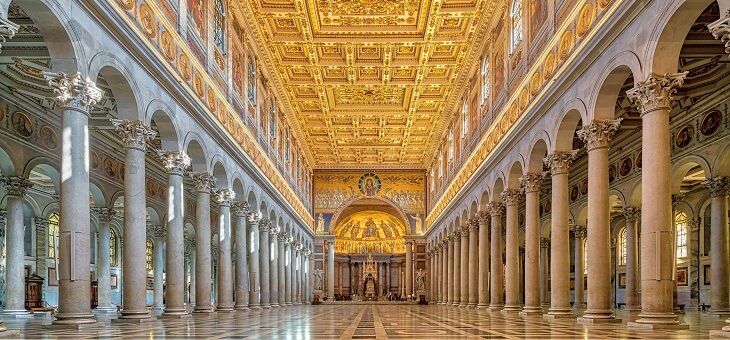Near the top of most Rome travel wish lists, sights like the Colosseum, the Pantheon, and St Peter’s Basilica are legendary, but there’s plenty more to the Italian capital that can’t all fit on the cover of the guidebooks.
Here are a few lesser-known spots you should check out in Rome.
Read: How Rome is getting back on her feet
1. The Pyramid of Cestius
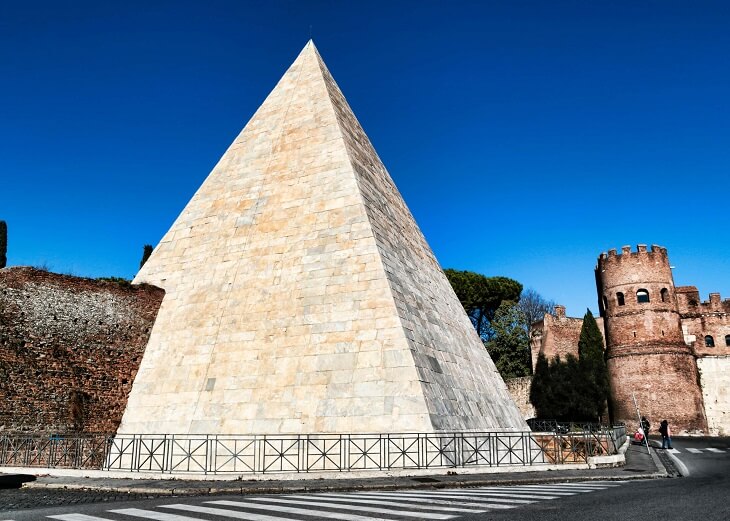
Right at home among historic ruins, though usually those of a different civilisation, this derivative tomb channels the even-more-ancient pyramids of Nubia, and cuts a surreal figure on the modern Roman skyline. Often called the only “Egyptian” pyramid in Europe, it’s much pointier than your usual pyramids and marked the resting place of a Roman nobleman between 18 and 12BC.
2. Torre Argentina – The Roman Cat Sanctuary
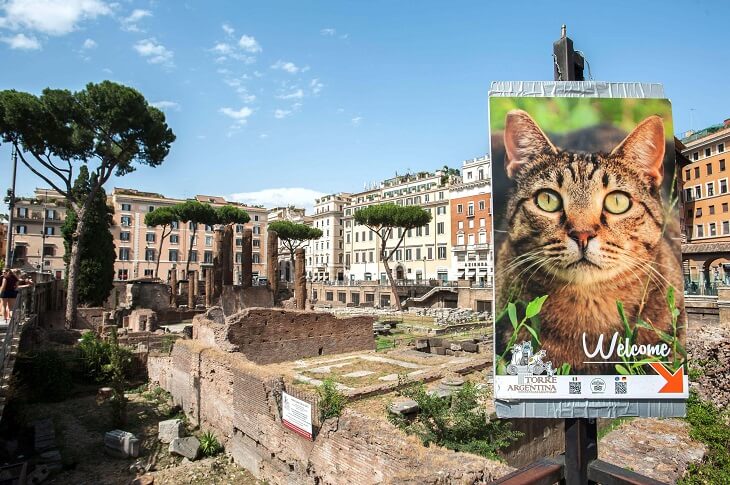
Come for the food and prehistory, stay for the furry friends. The crumbling temple complex of Largo di Torre Argentina became a sanctuary for sick and injured felines in the early 1990s, and today literally hundreds of animals prowl the mossy pillars and colonnades. The ruins actually contain part of the Portico of Pompey.
3. The Baths of Caracalla
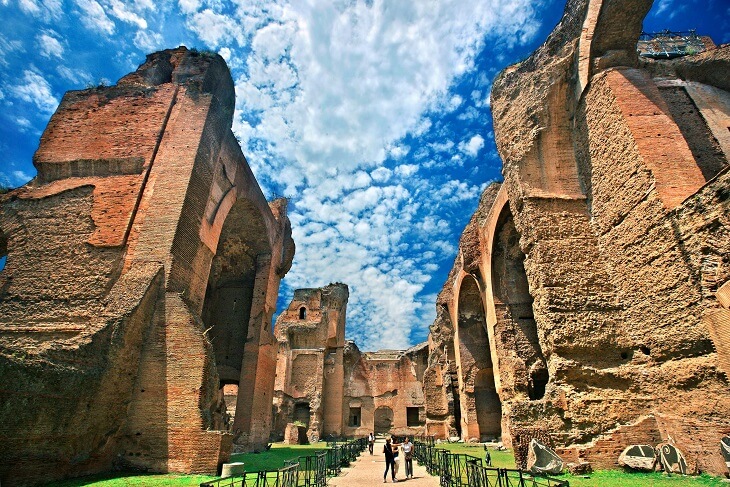
The Baths of Caracalla are hardly unknown, but they’re still a few thousand Instagram posts away from mainstay status. The second largest public baths in Ancient Rome (or thermae, to be exact), there’s an impressive amount of masonry still standing, and it is easy to envisage the marble-and-stone splendour of centuries gone by.
4. Capuchin Crypt
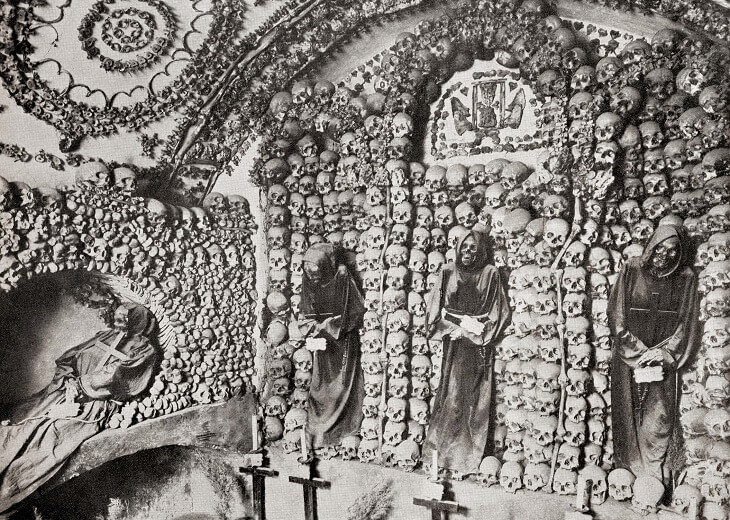
If you’ve ever been to the Sedlec Ossuary in the Czech Republic, and its chandeliers made from literal human skulls, you’ll know roughly what to expect from the Capuchin Crypt. The resident friars would give their dead three decades to decompose before exhuming the bones, and building skeletal displays on the walls and the ceiling. A chilling and deliberate reminder of our mortality.
Read: Embrace the future by learning how to hug a tree in Italy
5. Michelangelo’s Moses
Though often associated with Florence, Michelangelo arguably spent his golden years in Rome, and his statue of Moses outside the church of San Pietro in Vincoli is as bewitching as anything he achieved in Tuscany. Austere, hunched, and anatomically precise, this spirited sculpture’s piercing stare is a case study in late-Renaissance vibrancy. Anything David can do, Moses can do better.
6. Domus Aurea
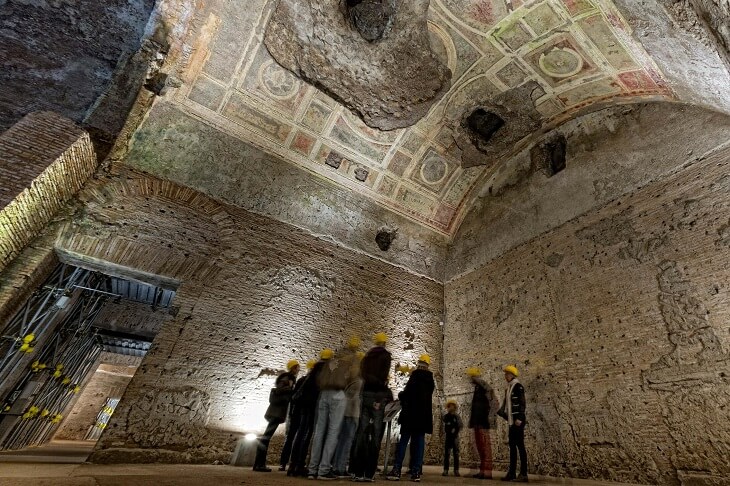
The palace Nero allegedly started the Great Fire of Rome to clear space for, the Domus Aurea should be historic site royalty – if only it could stay open. Once covering up to a third of the city, today’s ruins are cavernous, subterranean, and still lined with gold-encrusted frescos that inspired several masters of the Renaissance. After a long series of protracted restorations, the site is again accepting visitors, but only on pre-booked guided tours.
7. Basilica of St Paul’s Outside the Walls
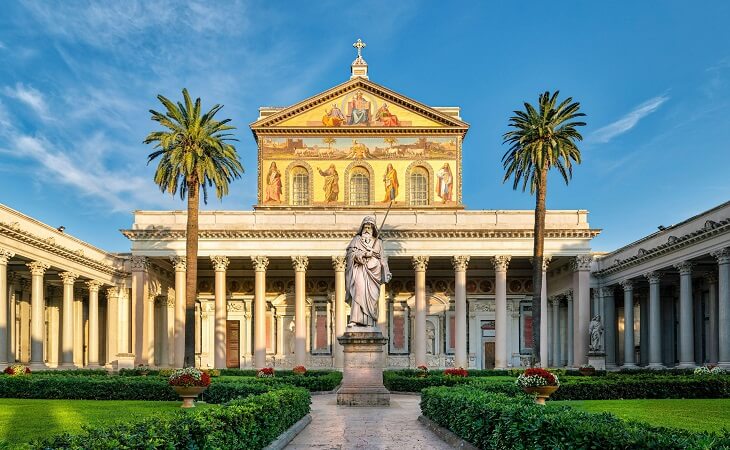
If this basilica were just a few metro stops closer to the centre, it would already be on most bucket lists. Supposedly consecrated by Constantine the Great over the grave of St Paul himself, this unsurprisingly opulent and ornate place of worship is especially known for a wall depicting portraits of every pope in sequence. Legend has it that when the wall fills up it will herald the Second Coming, and there are only a few spaces left.
Read: European cities that are better in winter
8. Centrale Montemartini
In any other city, the Centrale Montemartini would be a flagship attraction, and it is a testament to Rome’s remarkable heritage that this abandoned power station-turned-archaeological museum slips under most radars. Peruse busts of long-forgotten emperors between disused diesel engines, and admire carvings of Achilles in the shadow of a giant steam turbine gathering rust.
Have you visited any of these lesser-known sights in Rome? Is Rome on your future travel list? Let us know in the comments section below.
– With PA
If you enjoy our content, don’t keep it to yourself. Share our free eNews with your friends and encourage them to sign up.

